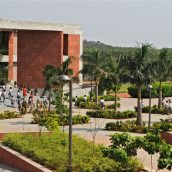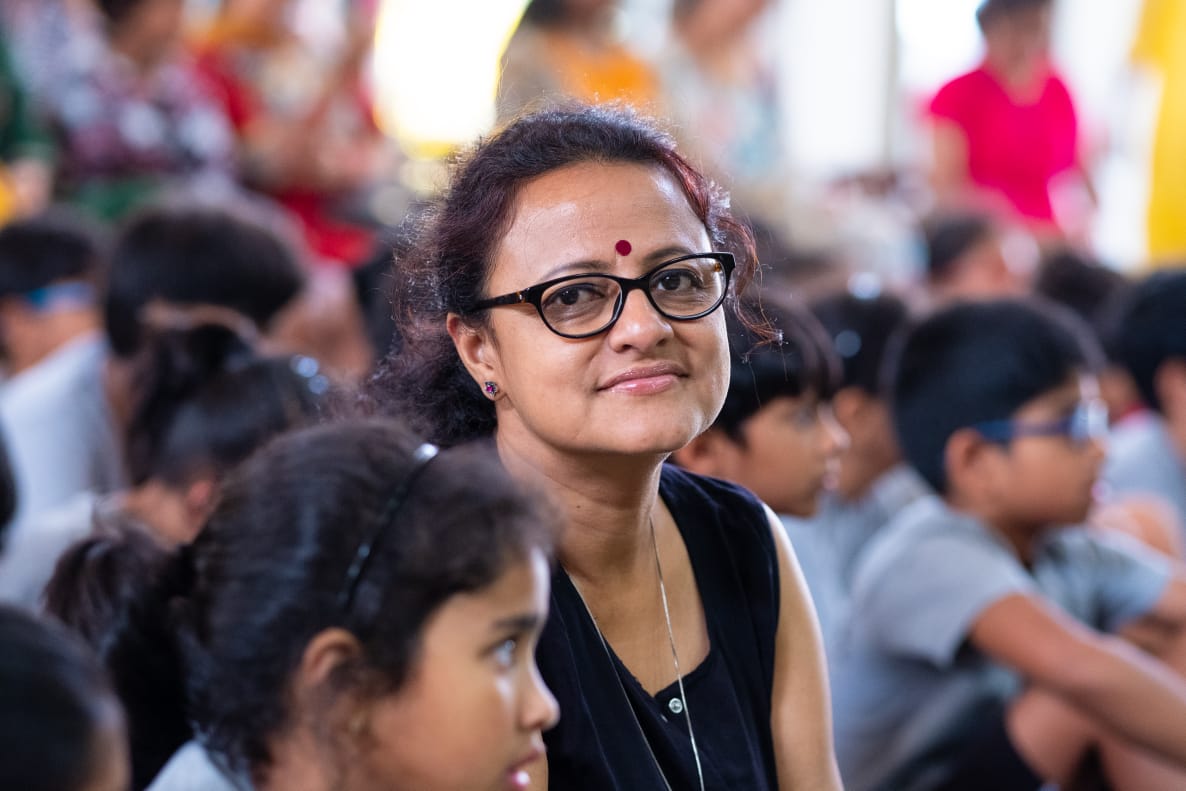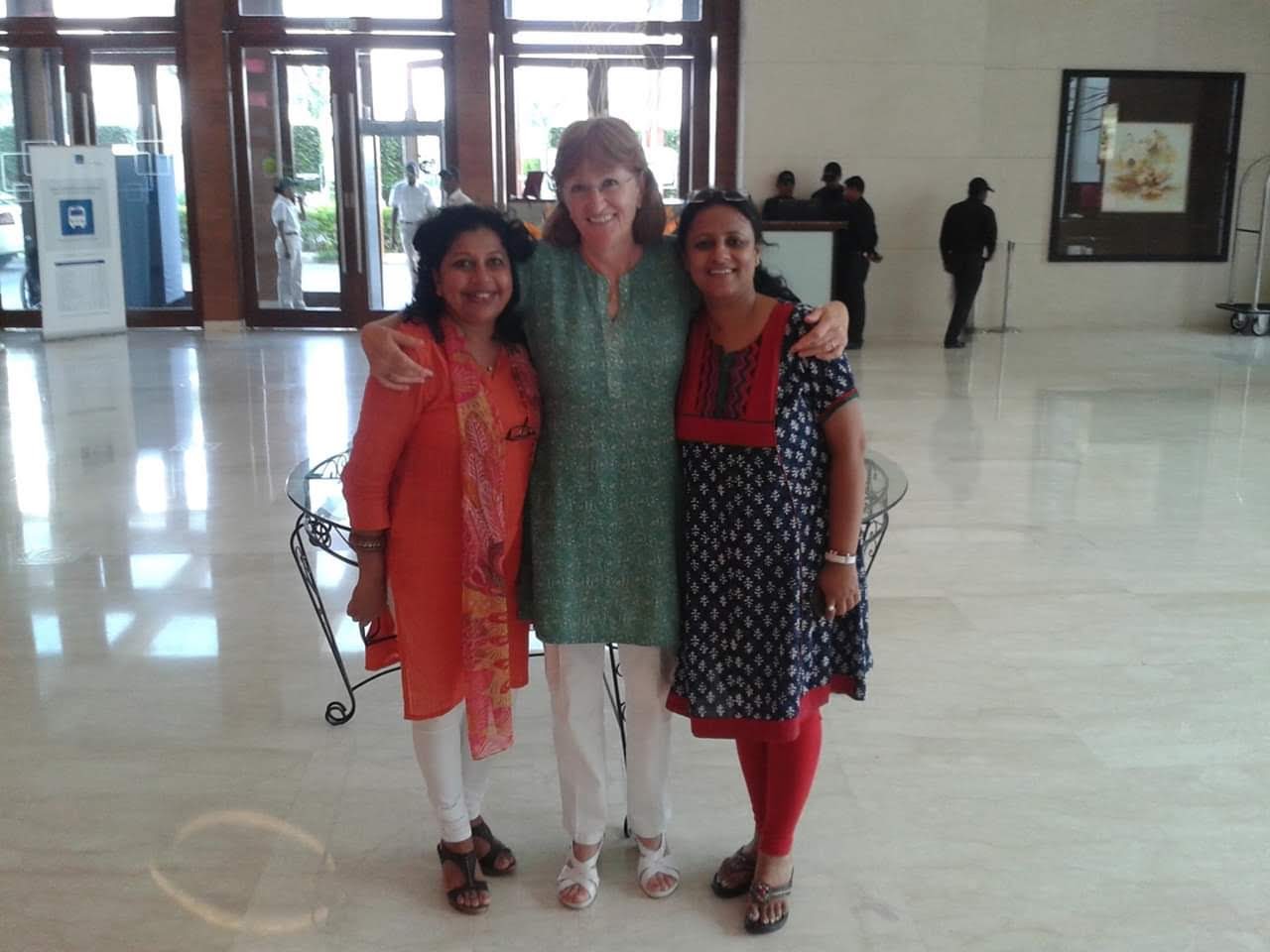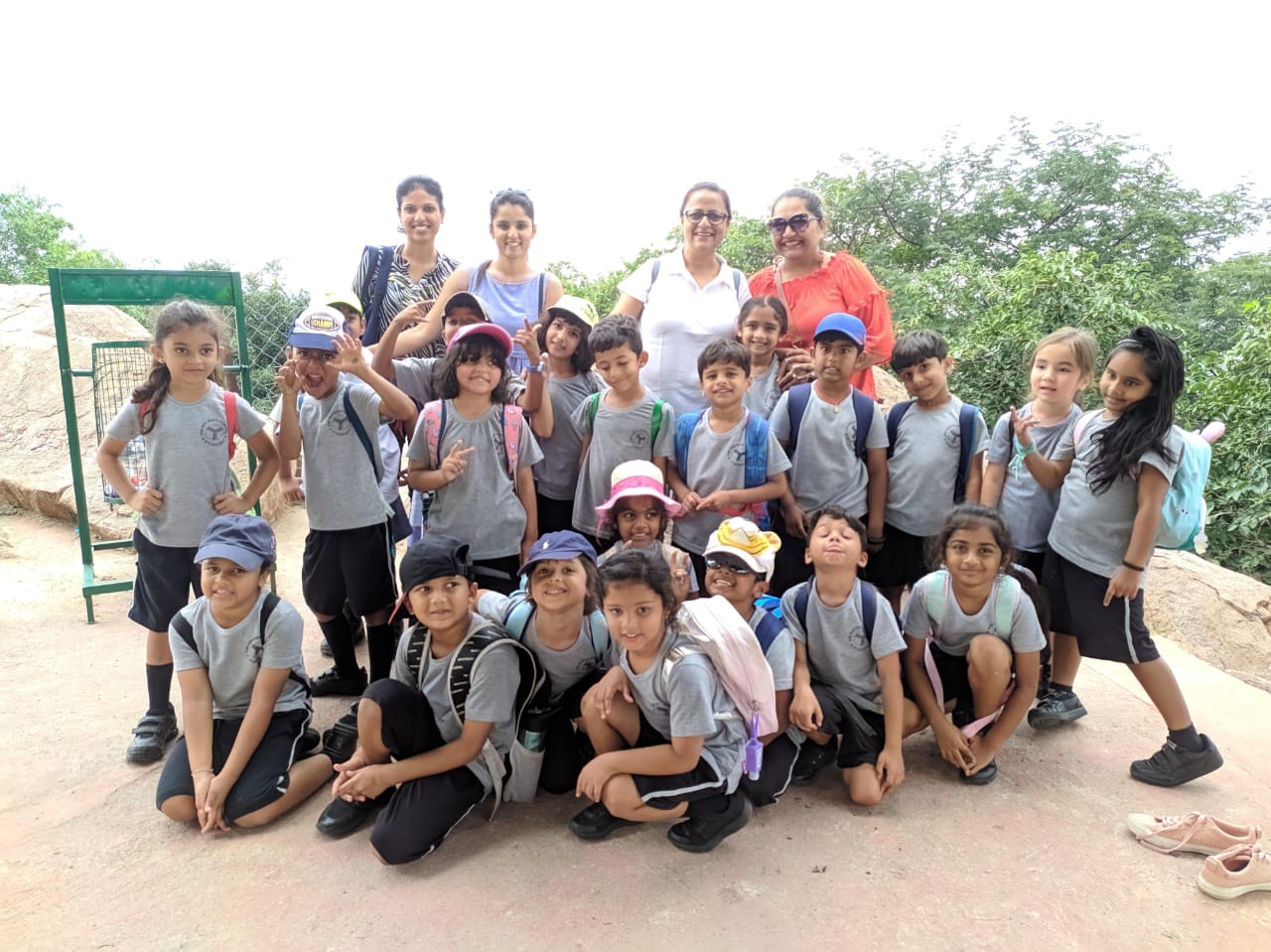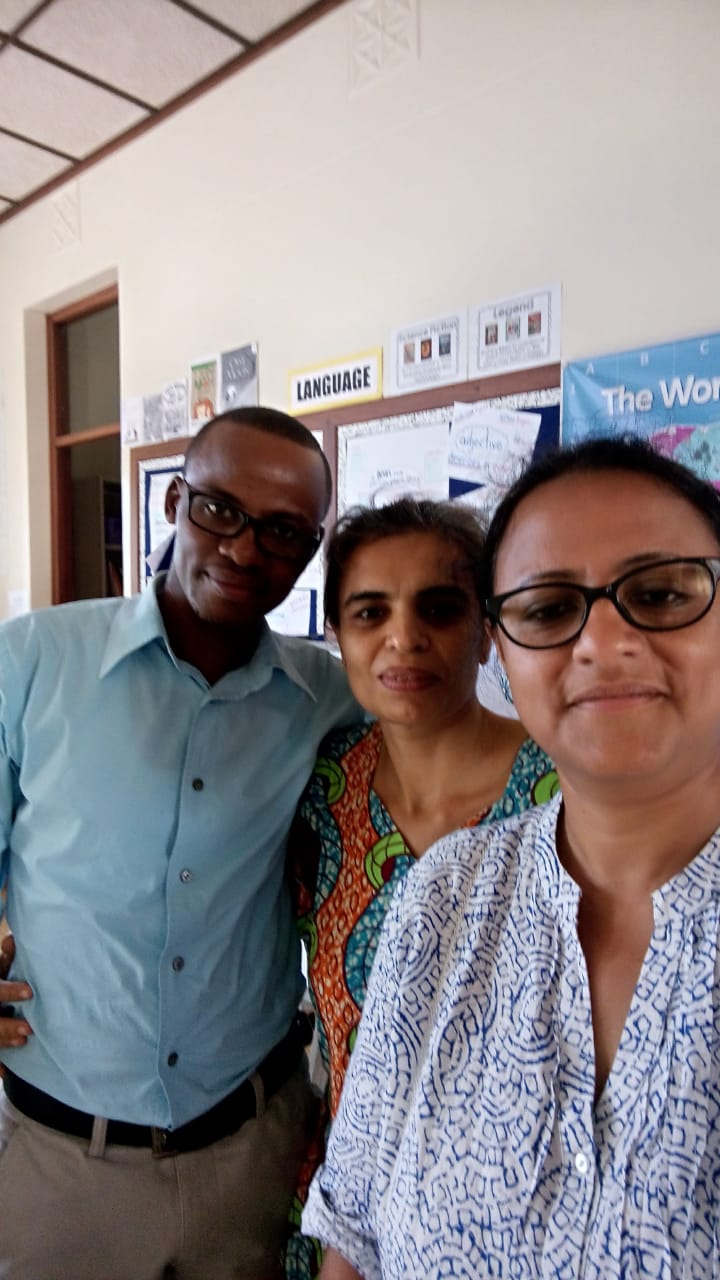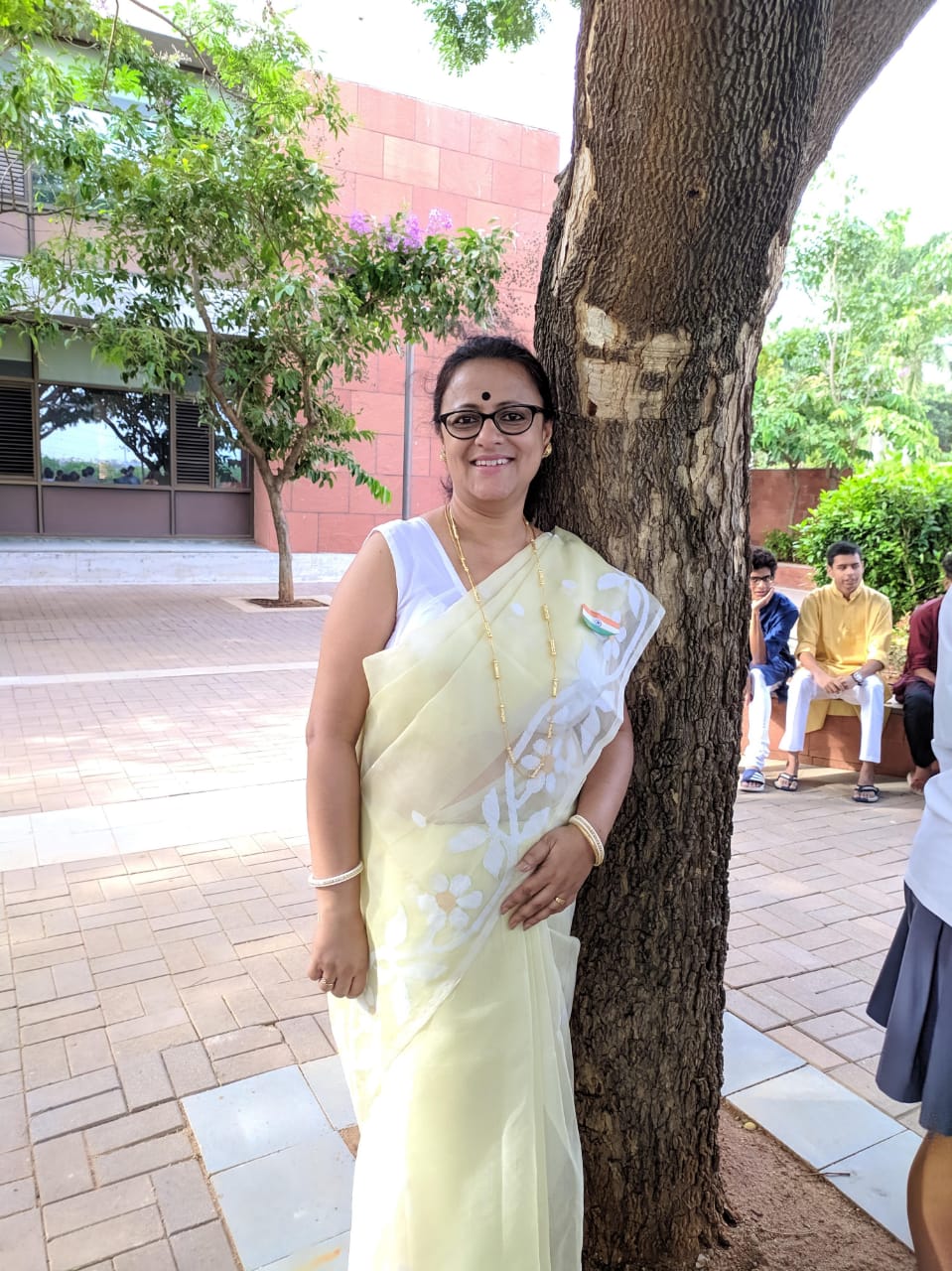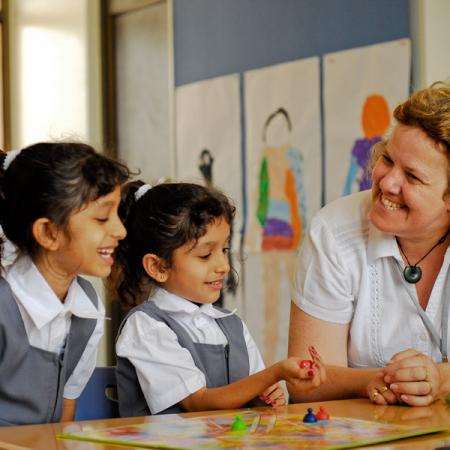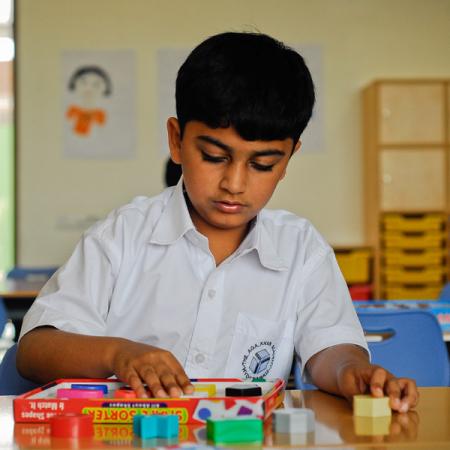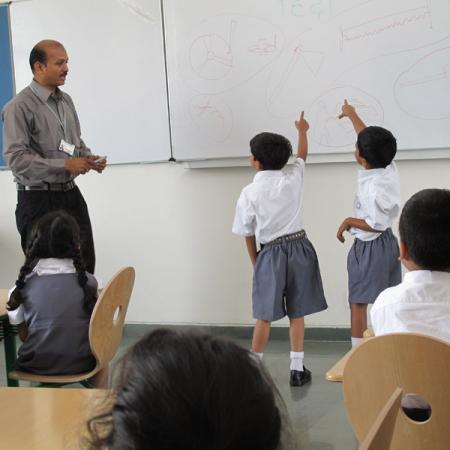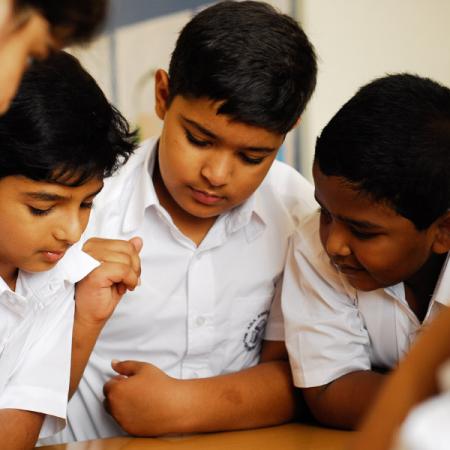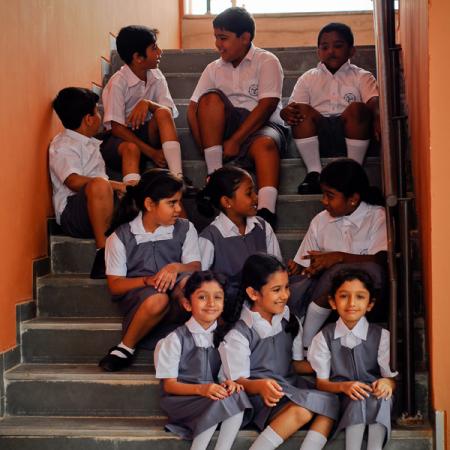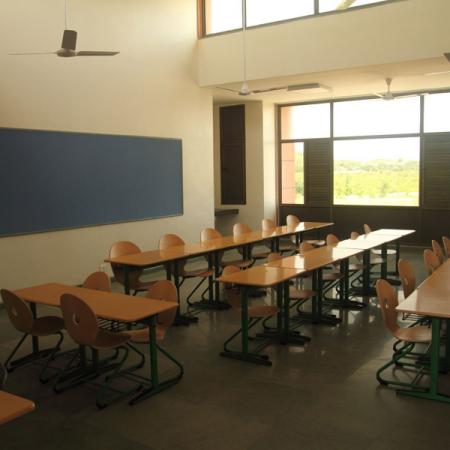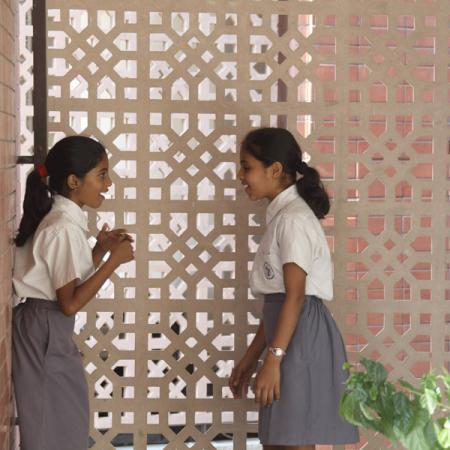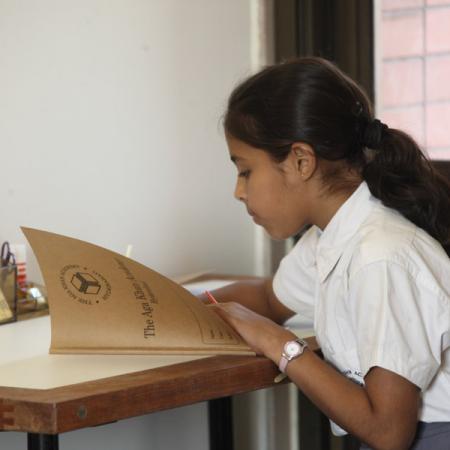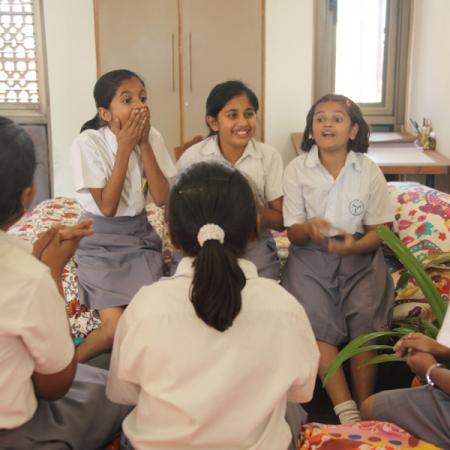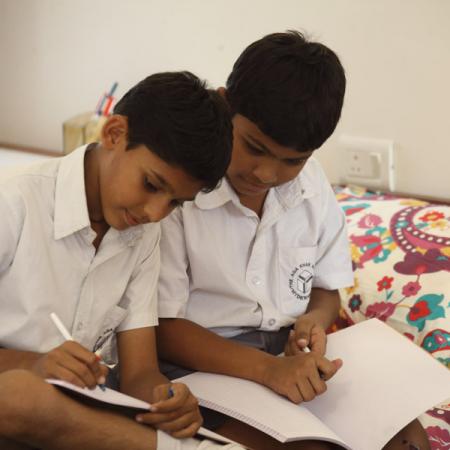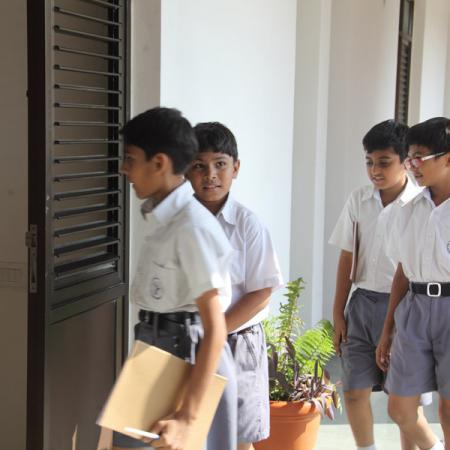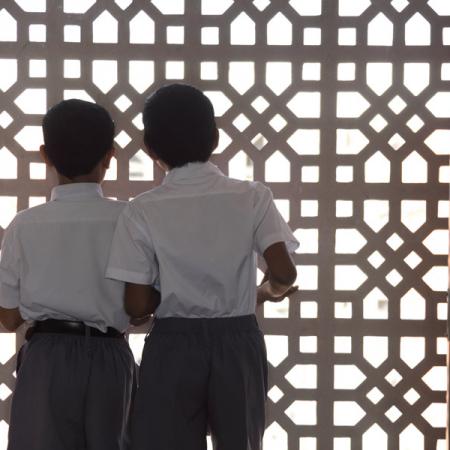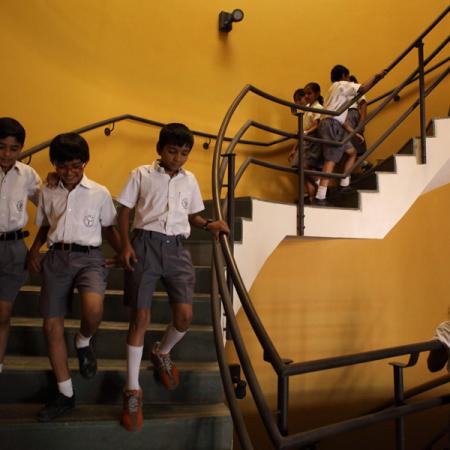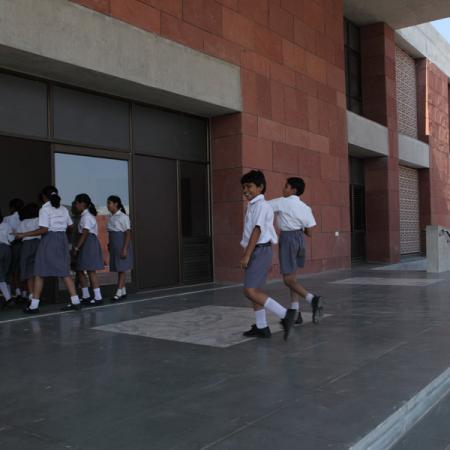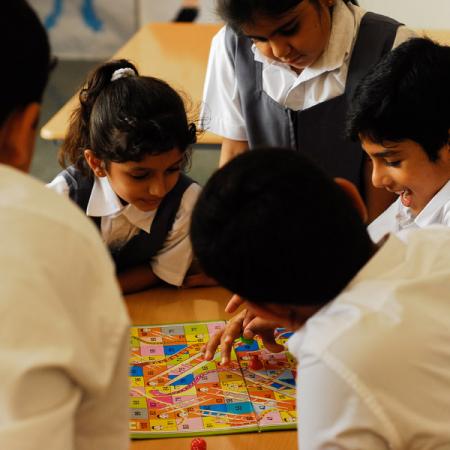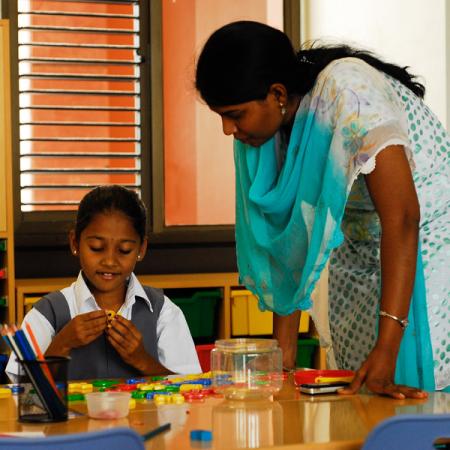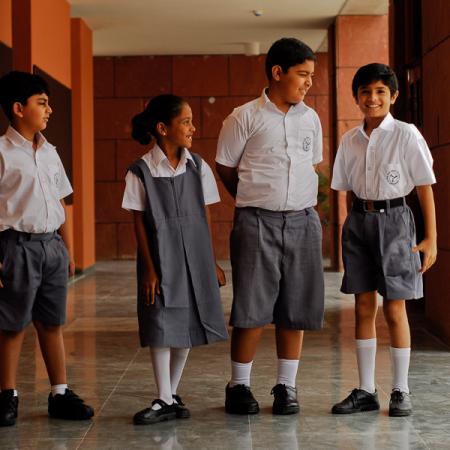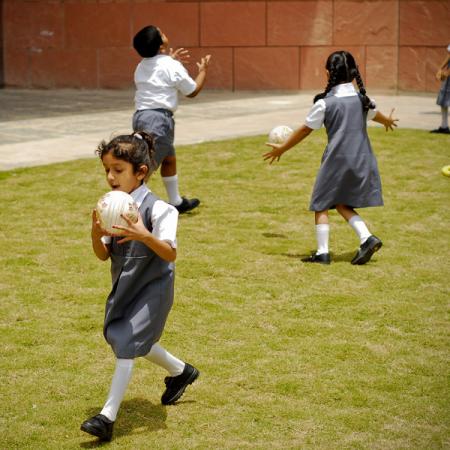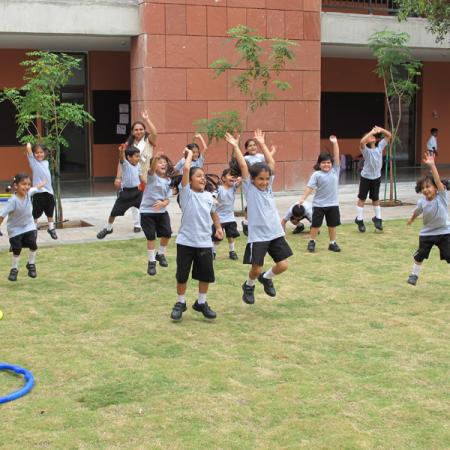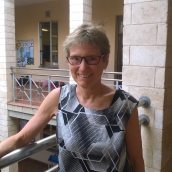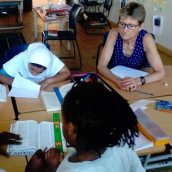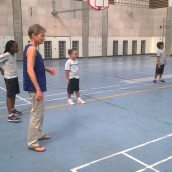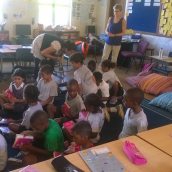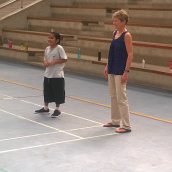Tanya Kakkade: Chasing Big Dreams
Limitless opportunity and a chance to excel can provide the motivation for even the young to do whatever it takes to improve their lives. Grade eight student Tanya Kakkade believes that her education and growth at the Aga Khan Academy, Hyderabad will enable her to pick and choose from the top universities in the world.
The attraction of those possibilities drove her to leave her previous school in Chennai and come to Hyderabad. “I’d always wanted to join a residential school, but the Academy hadn’t been built last year and no grade eight program. This school has a lot of opportunities once you finish; it has a good way of learning and gives you leadership qualities.”
She likes the fact that the AKA doesn’t just focus on education and career development but also on becoming well-rounded adults, encouraging students to participate in a number of activities. Tanya also enjoys being able to try new things at the school during her free time and participating in clubs that will help her in the future, including theatre and publications.
“I want to become a layer; I enjoy fighting for rights and arguing. I can imagine myself getting out of school and getting a lot of job offers or applying for top universities.”
While Tanya left her family behind in Chennai, she hasn’t felt that going to school in Hyderabad has been particularly challenging.
“The school is like a family, so you don’t always miss home [and] they never make us feel homesick. My parents miss me a lot but they say that it’s for [my] education and the AKA is the best school so [they] sacrifice a little fear for [my] good future.”
With her passion for human rights, it’s obvious that Tanya has the makings of a successful professional in the legal field. “I’ve not decided yet, but I’d like to become a business lawyer. I always wanted to go [overseas], maybe apply to a lot of universities and pick from the best.”
In Tanya’s mind, regardless of her future plans, her experiences at the Aga Khan Academy have begun to give her a foundation that she can be proud of.
Welcome
Welcome to the Aga Khan Academy Hyderabad! I hope this website will capture your imagination and give you some insights into this remarkable school. We are part of a global network of schools unleashing the potential of young people! Inspired by the vision of His Late Highness Prince Karim Aga Khan IV, we offer world-class education to exceptional students of all backgrounds or financial circumstances.
Our graduates are reflective, compassionate, adventurous and creative. They go on to excellent universities around the world as confident global citizens empowered to make a positive contribution in a changing world. Our curriculum is challenging, engaging and experiential – allowing students to find their strengths and develop their passions. Our state-of-the-art campus has exceptional facilities in a beautiful natural environment.
An Academy education combines the very best features of a high academic challenge with a unique approach to the enrichment and personal development of young people. We prepare our students for exams and we equip them to earn a living, and we do all of these things with rigour which nurtures the potential and achievement of each individual. Yet the education we offer is designed to go far beyond these goals; to develop the whole person and not just a part; to help each individual to become, in the words of our mission statement, "fearless learners who are culturally-rooted and internationally-minded.”
Visitors discover a friendly and dynamic atmosphere here – there is a determination to succeed, to enjoy life, to enjoy each other's company and, most importantly, to discover that there is far more in each of us than we think!
Dr Jonathan Long
Head of Academy
Laboni Banerjee: cultivating community wherever she goes
Laboni was immediately attracted to AKA Hyderabad because of the vision and mission of His Highness the Aga Khan for the Aga Khan Academies. She found the values of the Academy to be more aligned with her own ethos than the school she was previously working at before joining the Academy.
“Over the course of 10 years at the Academy, I have found myself a part of a vibrant and caring community,” Laboni said.
When joining the Academy in 2010, Laboni recalls it being a much smaller school then, especially the International Baccalaureate (IB) Primary Years Programme (PYP). There were only seven PYP teachers and the Junior School principal at the time, Diana Smith who started the PYP at the Academy, along with Sreelatha Kumar, who was the PYP coordinator at the time and is now the Junior School principal. AKA Hyderabad received the Diploma Programme and Middle Years Programme authorisation in 2012 and 2013, respectively. The latter year is when Laboni remembers seeing notable growth in both students and faculty at the Academy.“Early years in the PYP were busy,” Laboni said. “During this time, I was also focusing on identifying myself as a member of the PYP team and growing with the school.
Over the course of her time at AKA Hyderabad, Laboni has taken on various roles. Along with being a Grade 3 teacher, Laboni took a role in the PYP reading and writing assessment in which she collected evidence and data. Laboni also helped with the Admissions Department and was responsible for checking the vocabulary of students applying to the Academy. Reflecting back, Laboni said she greatly appreciated this role because it allowed her to build a special relationship with parents and students from the very beginning of their Academy journey.
“While working with the Admissions Department I valued meeting a large number of people who were enthusiastic and eager to learn more about the PYP in the early years.”
From 2012–2014 Laboni helped with AKA Hyderabad’s Outreach Teacher Training programme, which is a core part of Academies’ Professional Development Centre (PDC) that trains local teachers around the community in various subject areas and enhances their pedagogical skills.
A few years ago, Laboni also had the opportunity to travel to the Aga Khan Academy in Mombasa, Kenya where she truly began to appreciate the pluralistic approach to education and diverse cultures and backgrounds the Academies values and emphasises. During her time in Mombasa, Laboni met Titus Mutemi, who was a recent graduate of the Teacher Preparation Programme – a programme provided by the Academies that trains teachers to become IB educators in their communities – and is now the PYP coordinator at AKA Mombasa. Laboni recalls Titus being filled with great enthusiasm and eagerness as he wanted to know everything about her class including the assessment techniques, books she has students read, any material created for the class and much more.
“Partnering with Laboni was such an enriching experience,” Titus said. “Her flexibility and open-mindedness made our collaboration easier and enjoyable. Years have gone by and yet her enthusiasm and unique way of engaging with the young learners is still memorable.”When AKA Hyderabad transitioned to online learning in March 2020 due to COVID-19, Laboni said there were a few challenges she faced but was able to overcome due to the support she received from the Academy.
“In the PYP we have always used technology as a learning and teaching tool. However, when we shifted to complete online teaching, building the bridge with new students I had never met before was the biggest challenge. With physical teaching, I was able to bond with my students on a personal level, but this changed with distance learning.
However, the Academy always supported me and made me feel comfortable working on a virtual platform with a new group of learners. Assigning me to be a part of various online professional development sessions was immense support as it helped me develop my understanding of the application of various teaching tools. The virtual learning and teaching also enabled me to look at my own teaching philosophy through a different lens and reimagine my teaching strategies. Now, it is my greatest joy and top priority to see my students online and have personal conversations with them.”Laboni said she cannot imagine her future without the Academy being a part of it. She is always involving herself in different roles throughout the Academy in order to connect with more students beyond the PYP and see how they turn their passions into reality. Laboni also said she is fortunate to be a part of a community that is continuously supportive and where she is encouraged to grow each day as an educator and individual.
“The greatest part about delivering education at the Academy and being a part of its community is that every day is a learning experience for me. I am always excited to see my students become open-minded young adults, chasing their greatest passions in life and thinking about how to make the world a better place for all.”
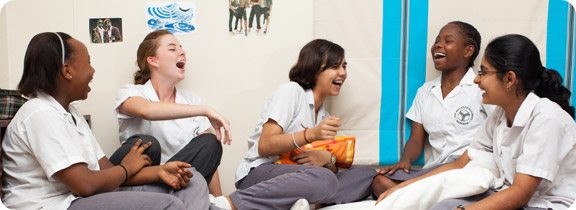
The Residential Experience
The residential experience is about learning and growth stimulated by the constant interaction among faculty and student peers of great talent, character and leadership. It greatly extends and enriches the overall educational experience.
Residential life at the Academy complements and extends the academic experience and includes a rich array of activities and leadership opportunities to enhance students’ learning and growth.
Mealtimes and other gatherings offer opportunities for informal interaction as well as for discussions, meetings, language tables and study groups.
The focus of the residential programme is on students’ intellectual, social, spiritual and physical growth in a structured and ethical environment. Many of the least tangible but most important elements of an education – the development of practical leadership skills, the capacity to make ethical judgments, the ability to navigate through complex cultural settings – are formed outside the classroom.
The safe and secure environment of each Academy’s boarding facility gives students of all backgrounds the opportunity to thrive emotionally, intellectually and physically.
In general, four students share a room. The rooms are spacious with high ceilings and large windows. Other facilities include a student lounge with a large-screen television, dedicated study areas and a laundry facility.
In addition, the Commons, the heart of the campus, houses the dining hall and an array of spaces for school activities.
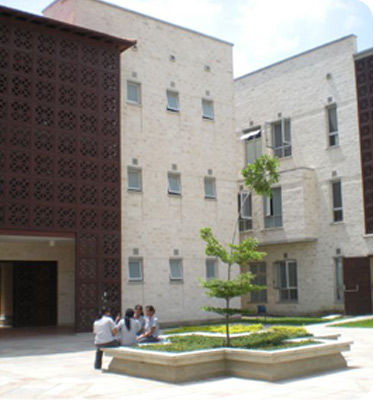
It is the hub of student activity, serving as the Academy’s main space for major school functions, including music and drama performances and public lectures.
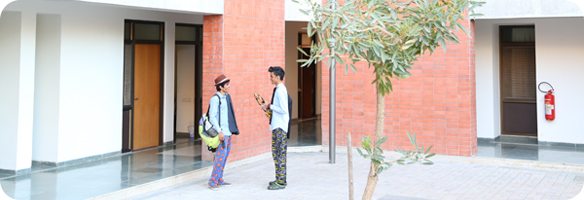
Living on Campus
Residential life at the Academy complements and extends the academic experience. Our residential programme includes a broad selection of activities and leadership opportunities to enhance students’ learning and growth.
The Academy’s residences include facilities to accommodate both students and teachers. Our residences house boarding students requiring accommodation as well as those participating in international exchanges between the Aga Khan Academy Hyderabad and other Academies and schools.
Teachers' quarters on campus house both resident and visiting faculty.
 Learning beyond the classroom
Learning beyond the classroom
Our residential programme is about the learning and growth that comes through constant interaction with a diverse and talented group of teachers and peers.
Mealtimes and other gatherings provide our residential students with opportunities for informal interaction as well as for discussions, meetings, language tables and study groups.
The focus of the residential experience is on students’ intellectual, social, spiritual and physical growth in a structured and ethical environment. Many of the least tangible but most important elements of an education – the development of practical leadership skills, the capacity to make ethical judgments, the ability to navigate through complex cultural settings – are formed outside the classroom.
The safe and secure environment of the Academy’s boarding facilities gives students of all backgrounds the opportunity to thrive emotionally, intellectually and physically.
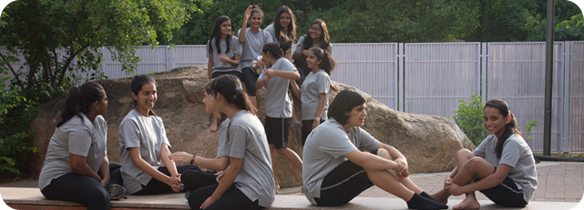
Residential Facilities
Our school culture is based on respect, integrity, honesty, fairness, empathy and good humour; and these values permeate the ethos of residential life.
The residential environment is warm and supportive, and this is reflected in the peaceful and inviting architecture of the residences. Boys and girls live in separate student residences, and all students are closely supervised by faculty and staff.
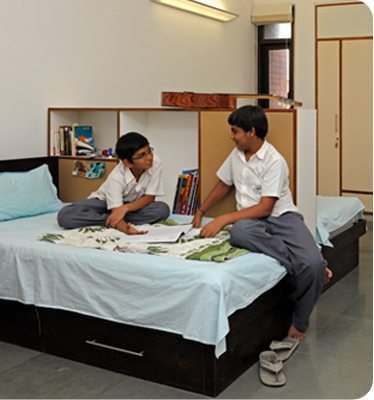 The adjustment to living away from home for the first time can be difficult for students. Our dorm parents are a carefully chosen group of teachers who live in faculty apartments in the residences. They ensure a safe, nurturing and fun-filled environment for students.
The adjustment to living away from home for the first time can be difficult for students. Our dorm parents are a carefully chosen group of teachers who live in faculty apartments in the residences. They ensure a safe, nurturing and fun-filled environment for students.
Dorm parents are trained in critical skills such as health and safety, community life and interpersonal relations. They possess a high level of energy to handle multiple tasks while offering guidance and support to the students.
We provide accommodation for members of the Academy community from both within the country and overseas, as well as those visiting or on exchange from another Aga Khan Academy.
Additional teachers' quarters on campus house resident faculty along with their families.
Photo gallery
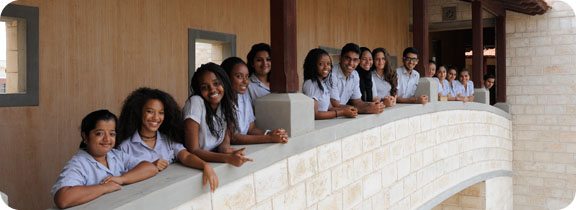
Residential Facilities
Our school culture is based on respect, integrity, honesty, fairness, empathy and good humour; and these values permeate the ethos of residential life.
The residential environment is warm and supportive, and this is reflected in the peaceful and inviting architecture of the residences. Boys and girls live in separate student residences, and all students are closely supervised by faculty and staff.
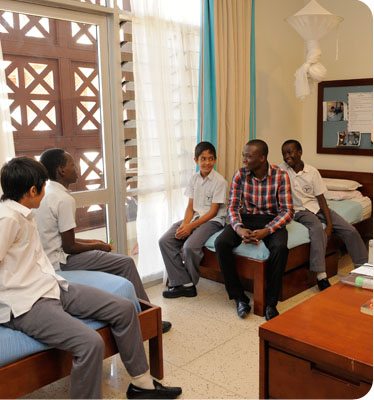 The adjustment to living away from home for the first time can be difficult for students. Our dorm parents are a carefully chosen group of teachers who live in faculty apartments in the residences. They ensure a safe, nurturing and fun-filled environment for students.
The adjustment to living away from home for the first time can be difficult for students. Our dorm parents are a carefully chosen group of teachers who live in faculty apartments in the residences. They ensure a safe, nurturing and fun-filled environment for students.
Dorm parents are trained in critical skills such as health and safety, community life and interpersonal relations. They possess a high level of energy to handle multiple tasks while offering guidance and support to the students.
We provide accommodation for members of the Academy community from both within the country and overseas, as well as those visiting or on exchange from another Aga Khan Academy. Additional teachers' quarters on campus house both resident and visiting faculty along with their families.
Christine Robertson: From Canada to Kenya
Christine Robertson is a veteran Ontario teacher who began a secondment to the Aga Khan Academy (AKA) Mombasa in April 2016. She talks about her experience of coming to Kenya and her first days of getting to know the Academy.
I have been involved in teaching and research, in a variety of capacities, since 1989. I always consider myself fortunate to be an educator. Each day brings something new to my experience and every student interaction is fresh and different. I have taught primarily with students in grades 4, 5, and 6; we refer to these as the junior grades in Ontario. I have also been involved in outdoor education and have taught some teacher preparation courses in classroom management. My research has included environmental education and exploring student learning through oral communication: classroom talk. My understanding of the work I would be doing here has definitely evolved over the past five months, since I first applied for the position, and then learned I was successful. When I sought the position, it was because the timing was right for me, both personally and professionally. The previous summer I had realised that, with both of my sons now on their own, I needed something new and challenging in my life. I had always wanted to teach outside of Canada, and so I decided I would begin looking for opportunities, such as teacher exchanges. It seems that I was ‘open’ to possibility when the information about the teacher secondment suddenly and serendipitously appeared in my electronic mailbox. The new school year was just beginning; in the midst of planning for teaching, I pulled together my CV and composed a covering letter. This would be a chance to work with both students and teachers; a great opportunity for learning, as well as for sharing from my own experience and training. At the time, though, I was unfamiliar with the PYP [Primary Years Programme]. I’ve known about the IB [International Baccalaureate] programme for some time, but only as an option for high school students interested and motivated to pursue an alternative curriculum. However, once I began to understand the PYP, I realised it aligned with the project-based and inquiry learning that had already been a part of my own practise. This comes from my background in experiential education. Both at the Ontario Ministry of Education, and now here at the Academy, I have been warmly welcomed. I am overwhelmed by the number of people I have met over the last few weeks, both in Toronto and here, in Mombasa, and hope I will soon have a more reliable recall of names (so, to everyone here, I apologize for not yet remembering who you are and what, exactly, you do! With time and repetition, I will catch on.)
Currently, I am spending time in classrooms, learning more about the PYP programme and observing several teachers in action. One of my tasks is to identify ways in which I can collaborate with colleagues here to exchange teaching ideas, to engage in ways that can contribute to the evolution of the AKA PYP, and to enhance and strengthen my own teaching practises in such a way that I can support teacher and curriculum development in Ontario. Gaining experience and understanding and exchanging ideas in a new cultural context is another goal that I have already begun to pursue.
Sometimes I have moments when I feel I have not been able to accomplish much…and then I realise I have only been here for 12 days! In that time I have survived several solo excursions across the roads to the Nakumatt [market], and journeyed in many tuktuks and matatus. I have been on a year 4 field trip to Shimba Hills National Reserve, and have seen some very talented students in action as ambassadors at an Academy orientation. I have been to Nyali, Tudor, Likoni and Old Town, and have walked along the beaches on the North Coast. I am beginning to converse in the PYP language and have a reasonable understanding of all that the year 5 exhibition entails. My Kiswahili vocabulary is slowly increasing and I have only been locked inside the library once. I have even been to the Nyali Cinemax…twice!This is an exciting journey for me, in many ways; it is a journey to a beautiful country on a continent far from home, a journey into new cultures, language, and way of life, and a journey of personal and intellectual experience.
Thank you to everyone who has worked so hard to assemble and nurture this project; I am appreciative of the chance to be a part of this partnership.
Newsletter readers please click here to return to the newsletter (browser version)
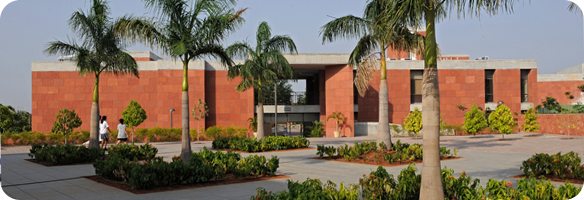
Our Campus
Built on a 100-acre site near the Rajiv Gandhi International Airport, the Aga Khan Academy Hyderabad offers state-of-the art facilities on a secure, landscaped campus.
Our school is the second in a network of Aga Khan Academies offering the highest international standard of education to students in countries across East Africa and South Asia.
The campus has been specially designed by renowned architects and is purpose-built. Our facilities include the following academic and resource areas:
- subject and age-specific classrooms
- well-equipped science and computer laboratories
- library and resource centres
- rooms for the fine arts, music and dance, including individual practice booths and a music recording area.
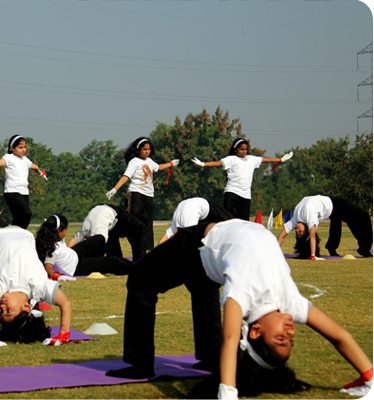 The Commons building houses the dining hall and an array of spaces for school activities. It is designed to be the hub of student activity, serving as the Academy’s main space for major school functions, including music and drama performances, and public lectures.
The Commons building houses the dining hall and an array of spaces for school activities. It is designed to be the hub of student activity, serving as the Academy’s main space for major school functions, including music and drama performances, and public lectures.
Sports facilities
Our sports facilities are extensive and include:
- swimming and diving pools
- sports fields, for example, for soccer, hockey and athletics
- cricket pitch
- tennis and squash courts
- athletics centre for aerobics, dance and fitness.
We invite you to visit the Academy to take a tour of our campus.
